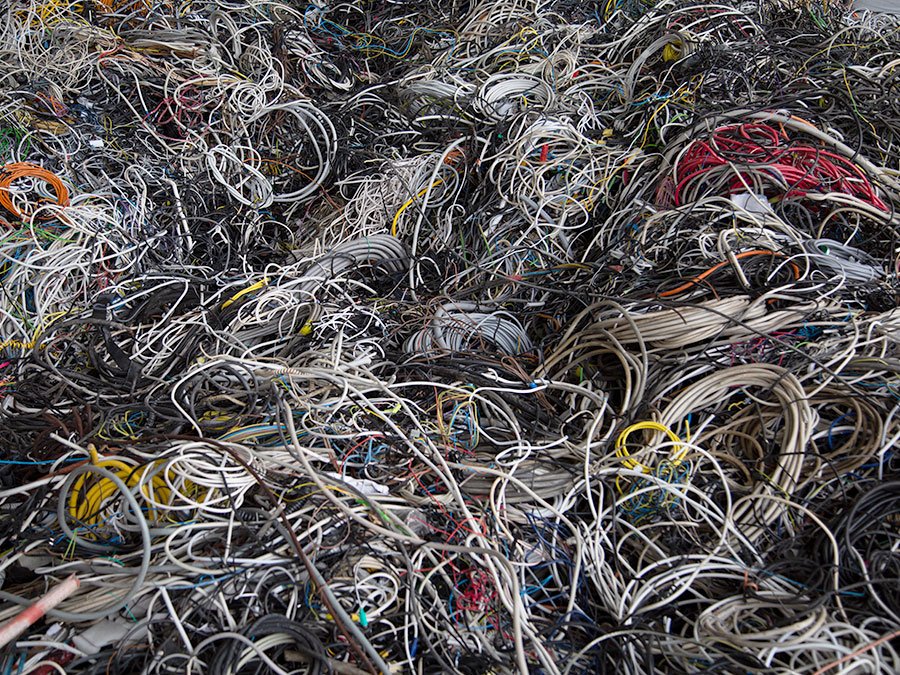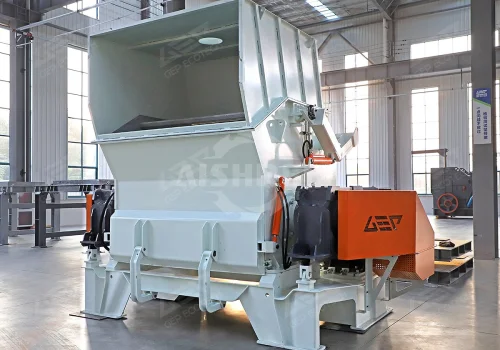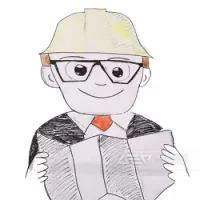The service life of electric wires and cables is from 10 to 25 years, after that it will be state of unstable and should be replaced. At the same time cable production waste and expired wires, together with used cables are generated every day, it's a large amount of waste.

The good news is, the recycling value of electric cables is high. The composition of cable waste contains non-ferrous metals (copper and aluminum).
However, If you want to extract copper or aluminum from waste cables, there is a complete process to be done.
Features of Cable Recycling
The complexity of processing cable waste is their multicomponent composition. One cable can contain non-ferrous metals (copper or aluminum), steel sheath, textile and plastic components, polyethylene insulation.
In the past, cable scrap is processed, removing only current-carrying cores. However, plastic accounts for up to 45% of cable weight and PVC for up to 70% of all plastic cable components, but these recyclable and reusable materials are simply thrown away. At the same time, not the most environmentally friendly technologies are used:
Firing. The cable is fired on an open fire, the insulation burns out, leaving a conductive core. With this processing method, the top layer of metal can melt, and the atmosphere will be replenished with toxic plastic combustion products.
Chemical dissolution of insulation. Copper cables are immersed in a solvent (the type of solvent is chosen according to the composition of the sheath), while leaving a high purity metal, but high cost, toxicity of solvents, slow performance and the need to constantly renew the solution make this method not the most convenient.
Manual separation of insulation. A complex and slow method, in which the quality of the raw materials obtained leaves much to be desired. It is reasonable to use only with a small amount of raw materials.
Today, using modern technology, it is possible to recycle all types of cables, including very thin, armored, oil-filled, copper and aluminum, underground and underwater laying, high-voltage, coaxial and telephone, electrical wires, extracting all components from waste in the form, suitable for further use. The level of complexity of processing varies depending on the type of cable.
Automatic Waste Cable Recycling Plant
The GEP ECOTECH offers ready-to-use cable recycling plants, which perform all stages of cable waste disposal:
Shredding of wires for cable recycling. The cable scrap enters the shredder, where hardened blades with cutting edges shred the wires together with the insulation and windings. The unit ensures homogeneity of shredding.
Granulation of shreded residues. The use of a granulator makes it possible to simultaneously process cables of large cross-sections and small diameters without prior sorting. The shredder creates particles of uniform size that are easier to separate from each other when sorting.
Separation of metals and plastics. The separator, using airflow, magnets and eddy currents, accurately and cleanly separates non-ferrous and ferrous metal particles from plastic particles, after which they can be sent for remelting and recycling.
Additionally, the line is equipped with an air filter and a dust collection container; a screw container can be installed to collect plastic.
Benefits of Waste Cable Recycling
- The accuracy of waste separation reaches 99.9%, the final product is very pure, without impurities, therefore it is more profitable for further sale.
- The use of cable recycling plants gives a positive economic effect: the company saves time and human resources, the dry separation system has low energy consumption, income arises from the sale of separated waste or the reuse of raw materials.
- The resulting processing of copper, aluminum or lead is used to create alloys, and insulation granules are used to produce building materials, road surfaces, packaging, new cables, shoe soles and garden hoses.
- No by-products and wastes, liquids, gases or waste water are generated during the processing. The process is purely physical, no fire, no chemicals, no water, so there is no pollution or waste.
- The extraction of non-ferrous metals from the cable takes several times less energy, money and time than their extraction from ore. By recycling copper and aluminum, you reduce the energy consumption of your business.
- The cable recycling plant has a simple structure, it is easy to install and operate, upgrade, integrate with other equipment.
Recycling cable waste is your opportunity to contribute to environmental protection, earn money by selling them. We advise on the processing of industrial waste, based on international experience in their recycling.
GEP ECOTECH is a leader in the design and manufacture of equipment for the recycling of cable shredders, granulators, separators and ready-made waste processing plants. The company offers comprehensive solutions for the disposal of all types of waste, constantly diversifying technologies.


